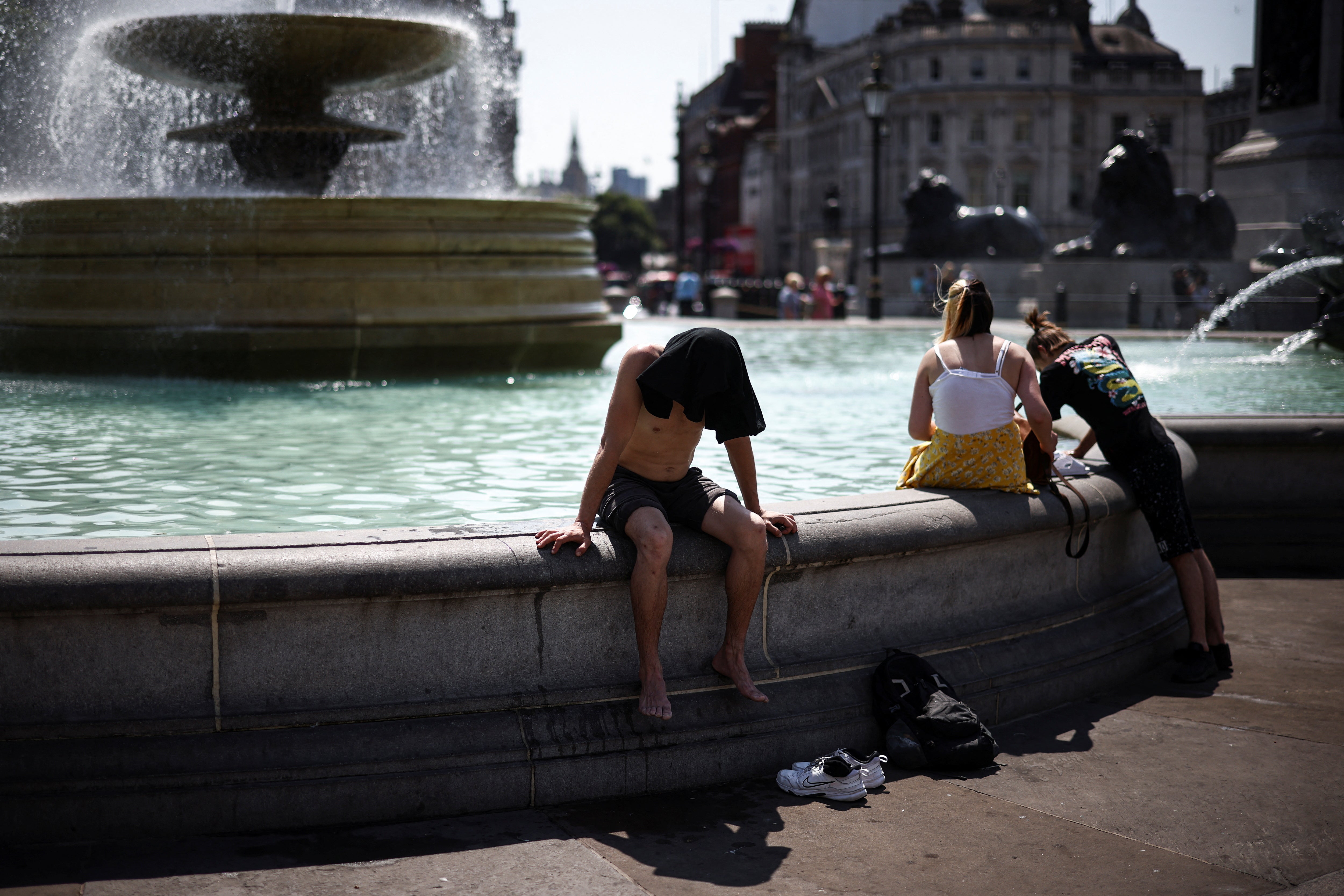UK temperature tops 40C for first time ever breaking record three times in one day
Coningsby, in Lincolnshire, reported a temperature of 40.3C at 4pm

Temperature records were broken three times in one day in the UK on Tuesday, after temperatures hit 40.3C at Coningsby, surpassing two other records set just hours earlier.
The Met Office said a provisional temperature of 39.1C had been recorded in Charlwood, Surrey, at 10.40 am on Tuesday only for that record to be broken soon after.
London Heathrow reported a temperature of 40.2C at 12.50pm, followed by 40.3C at Coningsby, in Lincolnshire, at 4pm.
The Met Office said at least 29 of its observation sites across the UK had recorded temperatures above the previous UK record of 38.7C set in Cambridge in 2019, on Tuesday.
Scotland also recorded its hottest temperature on record on Tuesday afternoon, with 34.8C in Charterhall in the Scottish Borders. That beat the previous record of 32.9°C set in Greycrook on 9 August 2003.
The news comes after the UK recorded its warmest night ever with temperatures not dropping below 25C in parts of the country, making it an uncomfortable night for many.
Meanwhile, the Met Office warned that temperatures were still climbing in many places, raising the prospect that the country could record even higher temperatures before the day is out.
Climate scientists have repeatedly warned that temperatures around the world that were once considered extreme are now considered unusual, while those that were once considered impossible are now considered extreme.
That’s because humans are pumping greenhouse gas emissions into the atmosphere heating the planet.
The global average temperature has already risen more than 1C since the late 19th century, and in May the World Meteorological Organization warned there was a 50:50 chance the global temperature will temporarily reach 1.5C above pre-industrial levels in the next five years.
Even surpassing the threshold temporarily would be an important moment as 1.5C was the temperature world leaders aimed to keep below in order to prevent the worst damage from the climate emergency.
Reacting to the UK’s new temperature record on Tuesday, the Met Office’s chief of science and technology said he hadn’t expected to see the UK exceed 40C in his career.
“It’s a real reminder that the climate has changed and it will continue to change,” said Professor Stephen Belcher in a video posted on Twitter. “It’s virtually impossible for the UK to experience 40C in an undisrupted climate, but climate change driven by greenhouse gases has made these extreme temperatures possible.”
Professor Belcher said if the world continued to pump out high amounts of greenhouse gas emissions the UK could see temperatures like this every three years.“These extremes will get more extreme in the future, the only way we can stabilise the comment is by achieving net zero.”
As the heat breaks, the Met Office has forecast heavy showers and thunderstorms in parts of England on Wednesday and warned that it could cause disruption on roads and rail with chances of flooding, lightning and possible power cuts.
The Met Office’s earliest daily temperature data in its digital climate database starts in 1853.
Subscribe to Independent Premium to bookmark this article
Want to bookmark your favourite articles and stories to read or reference later? Start your Independent Premium subscription today.

Join our commenting forum
Join thought-provoking conversations, follow other Independent readers and see their replies